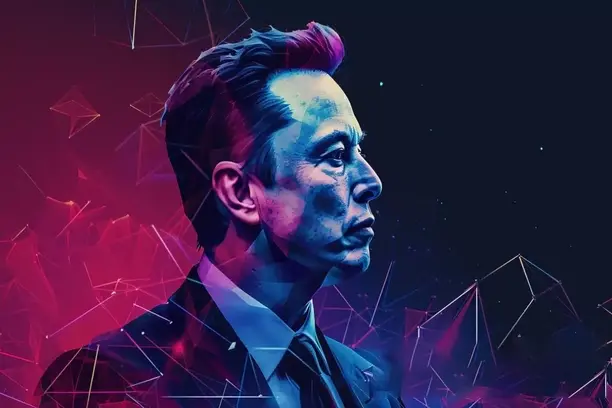Cardano (ADA) is a blockchain platform that is currently gaining attention in the cryptocurrency market. It was founded by Charles Hoskinson to address the scalability, security and sustainability issues of traditional blockchains. Compared to Bitcoin and Ether, Cardano is designed to be more scientifically researched and mathematically based, and uses a consensus algorithm called Ouroboros. In this article, we'll take a closer look at the features, technical advantages, and investment value of ADA to help investors fully understand the potential of ADA.

What is ADA?
Cardano (symbol ADA) is a science-based blockchain platform that aims to provide a scalable, secure, and sustainable blockchain architecture. It was founded by Charles Hoskinson, one of the co-founders of ethereum. Cardano's development process places a strong emphasis on academic research and peer review, which makes its technology somewhat unique compared to other blockchain platforms. The platform's native token is ADA, which is primarily used to pay for transactions, staking and participation in governance. Cardano emphasizes sustainability and long-term development with the goal of creating a global, decentralized financial ecosystem.
Caldano's core technology features
One of Cardano's core technical features is its use of Ouroboros, the world's first peer-reviewed blockchain consensus algorithm designed to address the scalability issues of platforms such as Bitcoin and Ether. This Proof of Stake (PoS)-based algorithm is more efficient than Bitcoin's Proof of Work (PoW), reducing energy consumption and increasing transaction processing speed. Cardano's design emphasizes modularity, breaking down the platform's functionality into multiple layers (e.g., clearing layer, computing layer), which not only enhances flexibility, but also facilitates future upgrades and expansions.
Advantages of the Ouroboros Consensus Algorithm
The Ouroboros algorithm not only outperforms PoW in terms of energy consumption, but also supports multiple network protocols and different blockchain applications. This gives Cardano a significant advantage in terms of scalability, maintainability and security. As Cardano moves into the smart contract space (e.g. with the launch of the Alonzo hard fork), this technology feature will be an important resource for the platform to continue to attract developers and enterprises.
Caldano's Sustainability and Environmental Advantages
Cardano's design philosophy is very much focused on environmental sustainability. Compared to traditional proof-of-work algorithms, the Ouroboros consensus mechanism significantly reduces energy consumption during network operation. According to several studies, Cardano's blockchain annual energy consumption is much lower than that of Bitcoin and Ether, making it one of the most environmentally friendly blockchain platforms. This feature undoubtedly enhances Cardano's appeal to environmentally conscious investors and businesses of all kinds.
Investment Opportunities in Environmental Trends
With the global focus on carbon emissions and the advancement of sustainable development goals, Cardano's environmentally friendly nature gives it the potential to add value in the long term. More and more countries and corporations will begin to focus on reducing the carbon footprint of blockchain technology operations, which may provide more opportunities for Cardano to collaborate.

Caldano's Smart Contracts and DeFi Ecology
Cardano's smart contract capabilities are one of its key growth areas. Since the Alonzo hard fork, the Cardano platform has enabled developers to create and deploy smart contracts and integrate them with decentralized finance (DeFi) applications. Compared to Ether, Cardano's smart contracts are more efficient, flexible and have lower transaction costs. This provides a new option for developers and users looking to enter the DeFi market.
Security and Flexibility of Smart Contracts
Cardano emphasizes security and verifiability in the design of its smart contracts. The platform uses the Haskell programming language and the Plutus smart contract language, which have strong mathematical logic verification capabilities and can effectively avoid common errors and vulnerabilities in smart contracts. This enables Cardano to better protect user assets and safeguard the platform as it enters the DeFi space.
Caldano's Governance Mechanisms and Decentralization
Cardano's governance mechanism is one of the core features of the blockchain platform. Unlike traditional corporate governance, Cardano's governance is determined by the community, meaning that ADA holders can participate in the platform's decision-making process. The platform's governance system uses a system called "Project Catalyst" to make proposals and votes. Holders can propose improvements and vote on other proposals, and this decentralized governance allows Cardano to remain flexible and transparent in its future development.
Benefits and Challenges of Decentralization
Decentralized governance not only avoids centralized power structures, but also promotes the diversification of platforms. However, decentralization also brings some challenges, such as how to balance the needs of different interest groups and how to ensure the efficiency of the governance process. As the Caldano community continues to expand, these issues will become important to the platform's development.
Investment Value Analysis of Caldano
From an investment perspective, the long-term potential of Cardano is not to be underestimated. Due to its strong technological foundation, environmentally friendly features, and decentralized governance, Cardano is expected to occupy an important position in the future blockchain ecosystem. Compared to older cryptocurrencies such as Bitcoin and Ether, Cardano is still in its growth phase, which means it has high growth potential.
Investment Risk and Return
Investing in Cardano is not without risk. Although its technical advantages are obvious, there are still some challenges to overcome, such as the widespread adoption of smart contracts and competition in the DeFi market. The cryptocurrency market is highly volatile and investors need to carefully assess the risks and diversify their portfolios. For those who are bullish on blockchain technology in the long term, Caldano is undoubtedly an option to keep an eye on.
Conclusion: Caldano's Future Prospects
As a blockchain platform based on science and mathematics, Cardano demonstrates considerable potential in both technology and ecosystem building. Its consensus mechanism, smart contract function and decentralized governance lay a solid foundation for its future development. With the further popularization of blockchain technology, Cardano is expected to achieve long-term growth in areas such as smart contracts, DeFi, and NFT. For investors, understanding Cardano's technological advantages and market trends will be the key to successful investment in the future.














